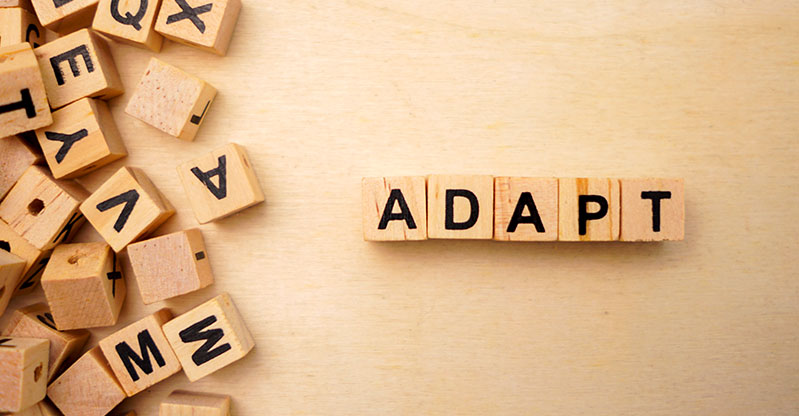You’ve heard us repeat this sentence on many, many occasions: Coding is a way of thinking. By learning how to code, your kids will develop and strengthen a number of skills that they’ll be able to use no matter what career path they pick for themselves.
Yes, even if they don’t want to pursue a career as app designers or game developers, the thought processes they’ll incorporate while learning how to code will enlighten their roads and will provide them with new and broader perspectives.
For example, when your kids learn how to program in a fun, supportive, and encouraging environment, where hands-on learning takes place, they’ll understand both the importance and application of problem-solving, critical thinking, and analytical thinking. As you know, these skills are fundamental in whatever industry or field of study is their favorite.
So, whether they’d like to become the next Bill Gates, or instead, the next Paul McCartney, Andy Warhol, or Martha Graham, the toolkit they’ll receive, comprehend, and integrate while learning coding will optimize their decision-making process, and will offer them better and more successful results.
Now, and going into more practical details: How can programming help kids who are not into science or technology? Let’s discover it together! Did you want something more practical and concrete? Here we go…

Coding is a way of thinking: Helping artistic kids!
As we mentioned before, coding can help. The question now is how, and which one of the multiple tools and benefits coding offers its learners, can artistic and humanitarian kids use the most in the near future. How can children who love to paint, dance, or write benefit from understanding what an algorithm is? Or, how can they use to their advantage knowing what Java, Scratch, or Python are?
Adaptation of the content
First of all, adaptation is needed. It is hard to understand that we are currently learning in the exact same way as our grandparents did. The classroom structure hasn’t changed in more than a century, and the content delivered by the traditional teachers doesn’t take into account the specific interests of each student, and how that specific person will use and apply the given knowledge and tools.
Therefore, the first invitation is to adapt the content, taking into consideration the needs, personalities, and interests of the students. Every single thing we learn provides us not only with wisdom and knowledge, but also with tools… So, the question teachers and instructors should ask themselves is: How is this specific student going to use the tools I’m giving? Should I give them a different toolkit according to their specific needs, hobbies, and interests?
In the live online coding courses offered by Tekkie Uni, instructors are trained to encourage all students to discover what their passions are, and the content is given considering those passions and interests.
If there is a student who loves arts, for example, it is explained to them how knowing the process of building an algorithm can then help them have a clear thought process when creating, designing, or thinking about their next artwork.

Encouraging participation!
When programming is being taught by people who care, the participation of the learners should be encouraged. One of the most important things when learning coding, is to understand the relevance of trial and error. Losing the fear of mistakes is key to becoming successful in life, and while learning how to code, learning from mistakes is a must.
If kids who are into theater, cinema, or performing arts learn how to code at a young age, they’ll understand how important every single step of the process is, they will comprehend why thinking in advance is necessary to achieve success, and they will experience first-hand that when mistakes are seen as learning experiences, results get better, boosted, and optimized.
Another big part of encouraging participation when learning how to code, is related to a very important side of jobs related to arts or humanities: Self-esteem and self-confidence. If your kids know that mistakes are learning experiences, and that participation is needed, their self-confidence and self-esteem will increase to levels you have never seen before.

Creativity: The main skill to succeed in the future.
How come we didn’t mention this before? Creativity is one of the most important skills to guarantee an innovative, successful career, and it can be strengthened in outstanding ways while learning how to code.
While coding, your children will have to solve problems in a creative way in order to proceed to the next step of their creation. Sometimes, they will have to face issues that are not easy to solve, but by thinking creatively, they won’t only find innovative solutions, but they will also realize that there are thousands of different possibilities to solve the one problem.
Understanding this can open an enormous window of opportunities for our kids in the near future, regardless of the career path they decide to walk. As you know, creativity and problem-solving are two substantial skills that can allow your kids to land the job of their dreams and come up with extraordinary entrepreneurial ideas of their own.

Give your kids these tools. Coding can help.
Coding is just around the corner. In the online, live coding courses offered by Tekkie Uni, your kids will develop and strengthen the skills mentioned above, and will understand how to think creatively and critically, in order to overcome any problem they might have with a smile on their face.
Also, kids who are more histrionic and love making videos of themselves, can even learn how to plan, edit, and upload their own YouTube video in a holistic course than can change their lives.
You already know, creativity is extremely important. Now, you are also aware of the fact that coding can also strengthen this skill. What are you waiting for to nurture your children with the abilities they need? It is up to you!




